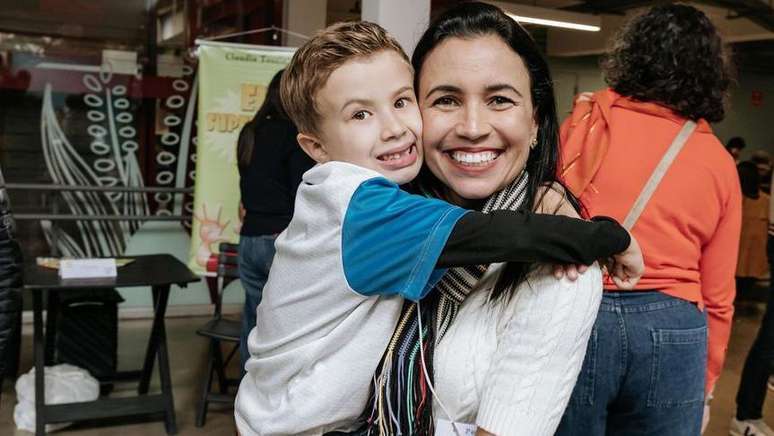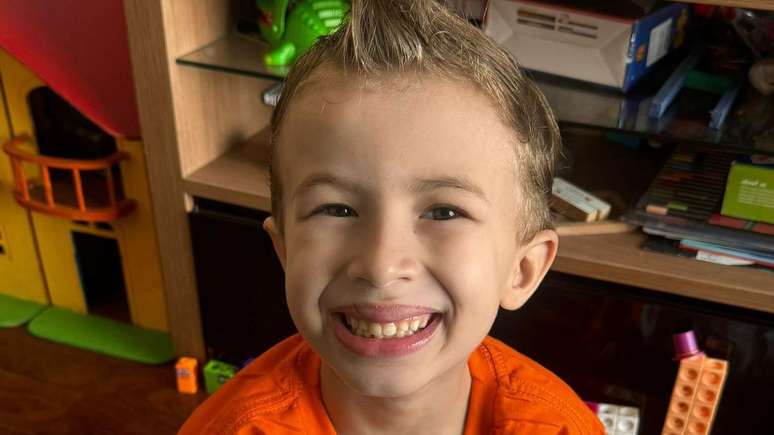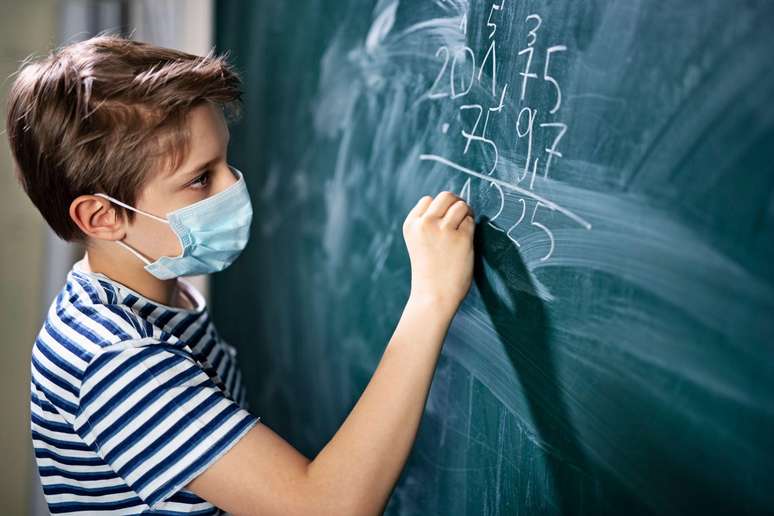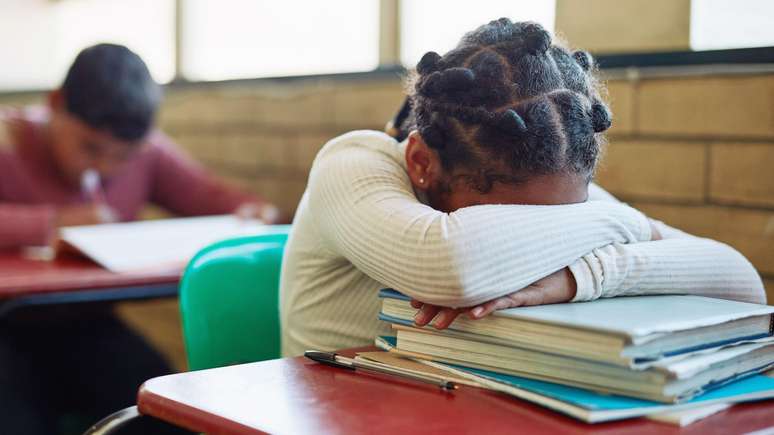Although common sense suggests that gifted children will always succeed in the classroom and be able to fend for themselves, they need special attention in schools, according to families and experts.
When you think of gifted children, it’s common to imagine that they will excel in school. The reality, however, can be very different and difficult.
Despite having above-average cognitive abilities, these children often face difficulties adjusting to schools that, according to parents and organizations focused on people with high intelligence quotient (IQ), are not prepared to address the specific needs of these students.
Sometimes these difficulties even lead to the expulsion of gifted students, accused of being hyperactive, aggressive and undisciplined.
This is the case of Luciana’s son (fictitious name), a 9-year-old child with high skills and who is already attending his fourth school, all private and in the capital São Paulo.
He will probably attend a fifth school, as the family is not satisfied with the current one.
Several times, according to his mother, he received warnings and suspensions for displaying agitated and sometimes aggressive behavior, such as swearing in class.
At two schools, the boy was asked to leave and the mother was barred from re-enrolling. In one of these situations, he questioned the school’s position.
“When I enrolled my son, I took the report that showed his high abilities, but he never had special support in class. Because he was bored with activities and was also teased, there were times when he lost regulation emotional and became more aggressive,” she reports.
“I felt like the school didn’t listen to me and saw my son as a problem.”
The boy has an IQ of 130, a number well above 83, the Brazilian average. An IQ above 130 is considered a talent, according to the Mensa Brasil Association, a Brazilian branch of Mensa Internacional (a British company founded in 1946 that brings together people with high IQs around the world).
Roberta de Castro’s son, Filippo, has a similar value: 134 IQ.
But he had adjustment problems when he entered his first school at the age of 3. Today he is 7 years old and attends a second, more adapted school.

According to the family, at the age of 3, the child already spoke English fluently after learning the language on his own by watching cartoons; At 5 years old he knew all the mathematical operations, solving problems with complex numbers and square roots.
When Philip entered his first private school, his mother gave a report on the institution with everything the boy knew how to do at that age.
“But it was as if I had done nothing and had handed over a blank sheet of paper”, says Roberta, specifying that the school did not include activities that stimulated her son’s abilities.
The mother recalls a situation she saw on the school cameras and which left her “very distressed”.
“They gave him some chalk to draw and he started to get very bored. The activity consisted of an hour of chalk: lots of children sat and played, while Filippo wrote the alphabet and ran outside to play in the courtyard. Then they went there to pick him up and started crying. He wanted to leave the classroom,” his mother recalls.
Roberta then started looking for other school options and found one in particular that adopts the methodology of active learning, which is not limited to handouts and books and encourages children to seek knowledge in a practical way, based on everyday events.
Philip was enrolled in this school before the age of 5 and is still there today.
“At the same time as she does the activities in the classroom she is in, she also gets activities in front of her focusing on the structures she has thanks to her talents. And all this is done in the same room, so she doesn’t feel left out” , Roberta celebrates.
How to deal with gifted children at school

According to the 2023 school census, 38,019 Brazilian students were identified as gifted, or 0.08% of basic education students.
Educationist Jéssica Maranhão, who specializes in special education, says that obstacles in training teachers to address giftedness begin at the level of the college they attend.
“When we say that a student needs specialized educational help, we immediately think of students on the autism spectrum or with some learning difficulties. In general, at university we do not study children with high abilities,” underlines Maranhão.
Again according to the pedagogue, when it comes to talent, the myth prevails according to which the student will learn alone, without any type of necessary monitoring, much less individualized and carried out by a qualified professional.
“In my opinion, a plural investment in the sector is necessary. Whether it is the dissemination of information on the topic, the specialization of professionals in welcoming students, but also governments and educational networks in offering courses on the topic”, he says the pedagogue.
For Fabiano de Abreu Agrela, neuroscientist and president of the ISI Society (a society for people with an IQ above 148 and notable creativity), the first step in addressing talents is understanding that these children have specific educational needs.
“Effective care, regardless of the educational model, requires individualized adaptations: dedicated attention, personalized activities, encouragement of autonomy, leadership development and exploration of one’s potential,” says Agrela.
The neuroscientist says that gifted children are “often more sensitive, perfectionistic and susceptible to frustration.”
“Educators must avoid confrontation or feelings of intimidation; on the contrary, they must act as facilitators who offer security, experience and an environment of trust. The main objective must be intrinsic motivation, stimulating curiosity and the integral development of the child “, points.

Since 2013, the concept of talent has been part of the Law of Guidelines and Bases (LDB), which regulates Brazilian education.
This means that these students are entitled to Specialized Educational Assistance (AEE) in the regular education network, which allows for accelerated grades and an adapted curriculum, as well as multi-purpose resource rooms.
The Ministry of Education (MEC) specifies in a statement that it is developing various actions “in favor of inclusive education”, such as the training of non-specialist teachers and the training of teachers and managers dedicated to special education.
“Publications on this topic are also being prepared, with a volume dedicated to high abilities/talents. These proposals and materials aim to contribute to the promotion of inclusive educational practices for students with high abilities/talents, promoting their full potential development of all students, respecting their specific needs”, says the MEC in a note.
When contacted, the Department of Education of the State of São Paulo (Seduc-SP) stated that “in cases where there is no satisfactory service in any educational institution, public or private, parents and guardians may seek advice from the Management of Education of the region”.
The secretariat added that the Special Education Policy of the State of São Paulo aims to offer specialized and adapted assistance to students with high abilities/gifts in the state educational network.
The Ministry also highlighted the importance of the Initial Pedagogical Assessment (API), which helps to identify the specific needs of students; and the Specialized Educational Assistance Plan (PAEE), which is prepared by specialized teachers and organizes pedagogical strategies aimed at developing high skills in schools.
Source: Terra
Rose James is a Gossipify movie and series reviewer known for her in-depth analysis and unique perspective on the latest releases. With a background in film studies, she provides engaging and informative reviews, and keeps readers up to date with industry trends and emerging talents.






